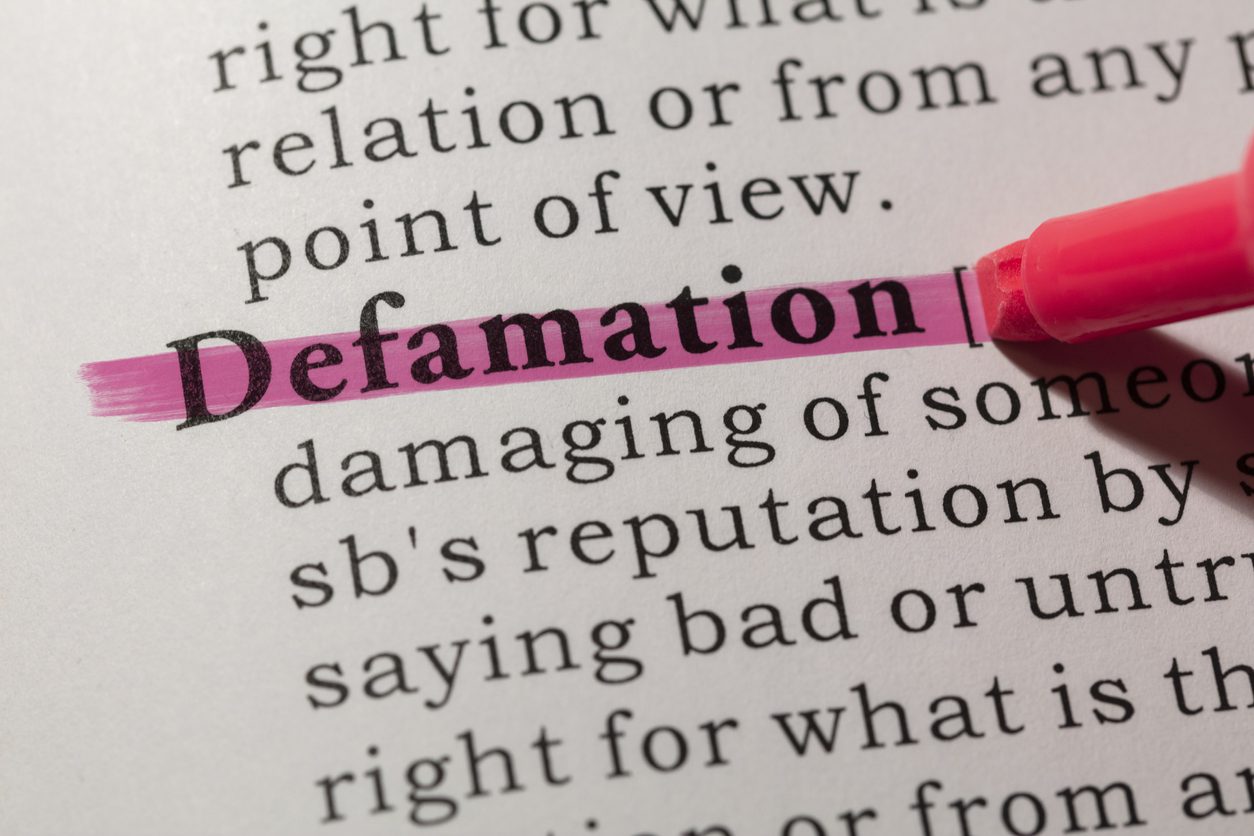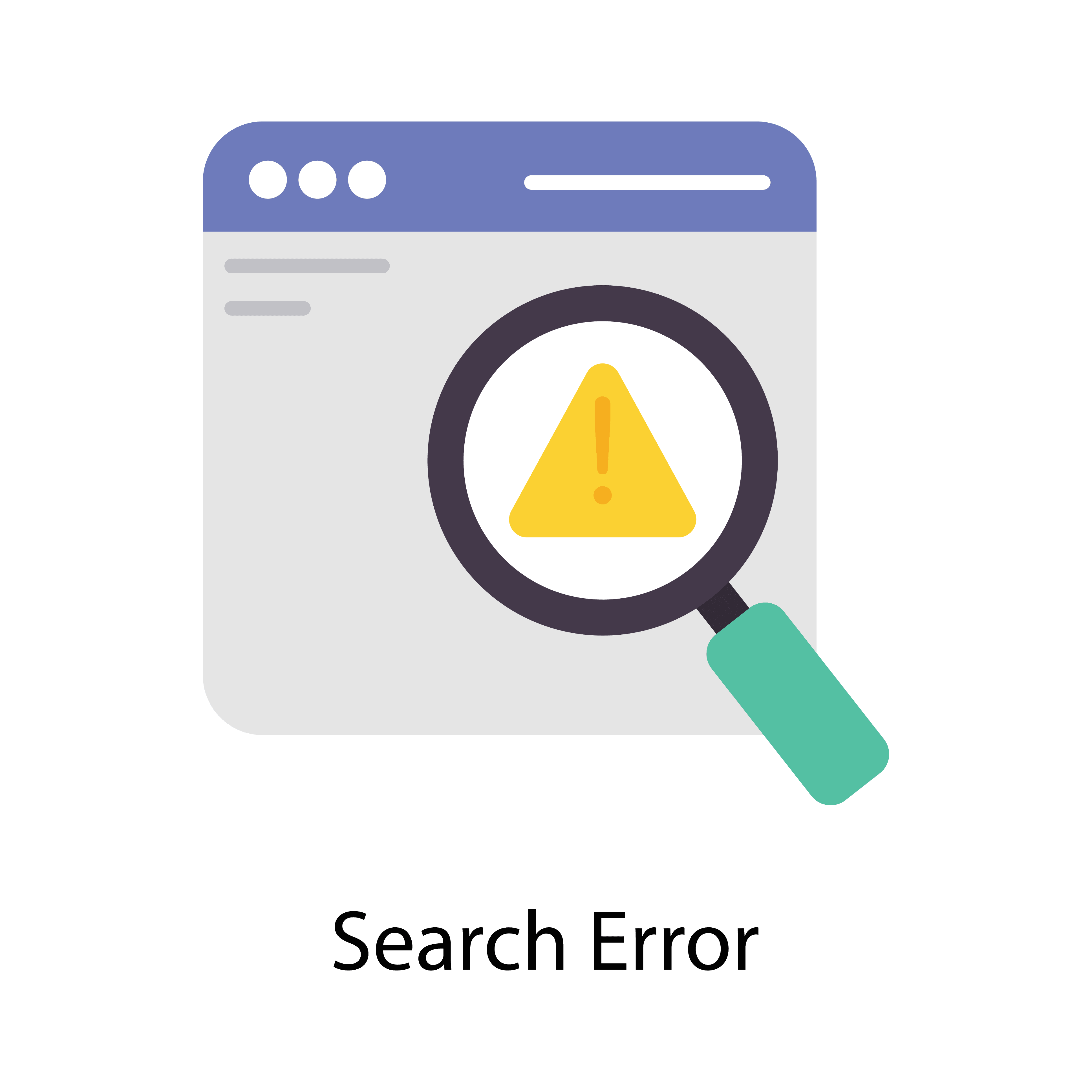Defamation of Business: When Is It Too Far?

Defamation of business puts your company’s reputation at risk. Learn how to defend your business from negative information with our guide.
A business’s reputation can result in either great success or can lead to complete failure. Now, when a disparaging comment may be made immediately online and dispersed to thousands, your business could suffer significant harm with the clicking of a button.
When somebody makes a false claim about your business, you need to do as much as you’ll be able to, to protect your company’s reputation. This article gives info on the types of claims you’ll be able to bring, defamation laws, and how to keep away from business defamation.
What is Business Defamation?
Defamation occurs when somebody makes a false untrue statement about an individual or entity and causes harm to their damaged reputation. These defamatory statements may be either written (often called libel) or spoken (often called slander).
If an individual spreads false details about your business that causes harm, there are two potential claims you’ll be able to file: defamation and business disparagement. The differentiating factor between the 2 claims is who suffers the harm.
A defamation claim alleges harm to a person’s reputation. For example, the person might be the business owner. However, business disparagement claims alleged harm to a business’s financial interest.
Because the Texas Supreme Court summarizes, “The 2 torts differ in that defamation actions chiefly serve to protect the personal reputation of an injured party, while a business disparagement claim protects financial interests.”
It’s possible to file both forms of claims to protect your private reputation and recover financial losses to your business.
Distinction Between Libel and Slander?
Where a statement is recognized as a constitute defamation statement, it’s then categorized as either a libel or slander.
- Libel – the general rule is that, if the publication is in a permanent form similar to a book, magazine, or newspaper, then it’s libel.
- Slander – the general rule is that, if the publication is in transient forms, such as speech, then it is slander.
Signs, gestures, pictures, and footage also can give rise to a claim of defamation.
As is quite common with various social media platforms, what then happens if somebody makes a spoken comment that’s a defamatory statement which is then transferred by another into written form? The speaker can be responsible for slander and the publisher of a trade libel claim.
Elements of a Business Defamation Claim
To achieve success in a defamation lawsuit or business disparagement, the plaintiff should prove all elements of the claim. Because of the Internet, consumers can now express their opinions about companies, good and bad. These opinions are often published online, which mean that one company need to be aware of trade libel lawsuit from competitors as well as from disgruntled customers.
If your business suffered financial losses due to a false statement, you might think about filing a business disparagement defamation lawsuit. A business defamation claim demands a business plaintiff to prove the defendant did the following:
- Published false or disparaging details about the business,
- Acted with malice.
- Lacked the privilege to make the statement.
- Triggered actual damages to the business.
Let’s examine every one of those elements in detail.
Publication of False/Disparaging Statement
First, the statement has to be published, which means the disparaging words might either be spoken or written to someone. Fake negative comments made in a private conversation probably are not going to count.
If an individual makes a true statement that harms your business, additionally, you will not have a legitimate claim. The comment has to be false.
Malice
Malice is the purpose of the defendant. The individual or entity making the comment will need to have known it was false, or not cared whether or not it was false, and made the statement anyway.
Lack Of Privilege
If the defendant had a legal right to make the false statement, then the business disparagement claim will fail. Examples of privilege include statements made underneath oath during a judicial proceeding or statements made by members of state or federal legislatures throughout debates.
Special Damages
The plaintiff must show that the business suffered particular damages as a direct result of the disparaging statement. Because of this, you have to be capable to prove the financial loss to your business. The defendant’s actions should have stopped others from doing business with you.
There’s a two-year statute of limitations period to file a business defamation lawsuit.
Elements of a Defamation Claim
To prove defamation, the plaintiff needs to point out evidence of three elements.
Defendant Published A False Statement
The false statement might be either written or spoken. Remember that a negative comment about your business is just not the same as a false statement.
Statement Was Defamatory Toward The Plaintiff
A statement is defamatory when it harms the reputation of an individual or entity.
Defendant Acted With Required Degree Of Fault
Relying on who the plaintiff is, the defendant should have made the statement with a certain level of fault. For private people, which is likely how a business owner might be labeled, the degree of fault is negligence.
When the plaintiff is a public official or public figure, the defendant should have acted with actual malice.
There’s a one-year statute of limitations to file a lawsuit for defamation. If your business suffers financial harm more than a year after the false statement is made, you could possibly file a business disparagement claim.
What are the Requirements for Bringing a Business Defamation Claim?
1. A Defamatory Statement Was Made
To look at if a statement is defamatory or refers to the claimant, the court should first determine what the words in question truly mean. The business defamation claim is a complicated problem. The court will attribute an ordinary or natural meaning to the words complained by using the example of what the reasonable individual would understand by the words.
Alternatively, the court might conclude that the words form an innuendo that means (i.e. understood by a certain group of the population with a certain knowledge by which they’ll understand the particular meaning). The test is, what a reasonable individual with the relevant knowledge would understand. The court accepts that the reader might draw inferences from the statement and those inferences might imply that a seemingly innocent statement is actually defamatory.
The innuendo meaning could be false or true:
- False innuendo – an alternative that means that the ordinary, reasonable person who can read between the lines would infer from the words
- True innuendo – when the words that appear harmless to some individuals appear defamatory to others because they possess particular knowledge or additional info
The writer’s intended meaning is irrelevant. Instead, the court will establish the best way by which the words have been understood.
2. The Statement Caused Or Is Likely To Trigger, Critical Harm To The Claimant
The Defamation Act of 2013 introduced a brand new test of ‘serious harm’ for figuring out whether or not a statement is defamatory, intending to boost the bar for bringing defamation claims. A statement won’t be defamatory except if the claimant proves that it has caused or is prone to trigger serious harm to their reputation. Defamation lawsuits require to prove ‘serious harm’ is a complex problem and one to be carefully considered by a legal advisor.
Briefly, whether serious harm has been suffered must be determined by reference to precise facts, which means the influence of the statement, not simply the meaning of the words. The courts have acknowledged that inferences of fact could be drawn from the circumstances and context of the publication, including matters such as the extent and nature of its readership or viewers and the gravity of the statement.
Where a social media posting is defamatory statements, the harm done by this may be significant. A social media post could be ‘shared’, ‘re-tweeted’, ‘liked’ and thereby reach a large audience, across the world. The more readers the offending post has, the higher the probability of reputational damage.
There exists an extra test in law that applies to a body trading for profit, namely a requirement to indicate that a statement has triggered or is more likely to suffer financial harm.
3. The Statement Refers To The Claimant
The statement has to refer to the claimant and, in lots of cases, it is a simple matter. A claimant is either immediately identified by name or described in such a way that a reasonable individual would deduce the statement refers to the claimant.
4. The Statement Was Published
A defamatory statement should be communicated to a third party, in different words not just to the claimant.
For slander claims (oral publication), the words have to be apprehended and understood by a third party. For libel claims (written publication), the words have to be read and understood by a third party. Due to this fact, if a statement is published but nobody reads it/hears it, there isn’t any claim for defamation.
5. There Is No Lawful Justification Or Other Defense.
Some defenses available to a claim of defamation are:
- Truth
- Honest opinion
- Privilege (absolute or qualified)
- Publication of matter for public interest
- Innocent dissemination
- Consent
Defamation claims have very tight deadlines of 1 year and so if you wish to bring a defamation claim or end up on the receiving end, then you need to search for appropriate legal advice at an early stage to see whether court proceedings could be avoided.
The Defences Available In Defamation Claims?
Even when a party publishes a statement that, on the face of it, seems to trigger damage to somebody’s reputation, that doesn’t automatically imply that it’s actionable in law. There are a whole host of defenses by which the publishing party could also be excused from wrongdoing. Some common examples are outlined briefly below.
Is the statement true?
If a statement is true, then that might afford an absolute defense against defamation proceedings. That is provided for in section 2(1) of the Defamation Act 2013 which says:
“It is a defense to an action for defamation for the defendant to show that the imputation conveyed by the statement complained of is substantially true”.
The courts adopt an objective assessment and disputes generally circle around the meaning of the words. An example may be to say somebody has been convicted of a crime when they have. On this basis, their reputation has not been unfairly harmed, where it’s a true statement.
Is the statement partly true?
If only part of the statements are true, and a few aspects aren’t, the court will look into whether the false statements are actually harmful or not. If the false statements don’t trigger substantial harm to the claimant then a defense of “truth” may still help.
Does privilege apply
Statements that are afforded privileged status in law could also be protected against defamation claims.
Absolute privilege
Some publications are automatically afforded “absolute privilege” and could also be excused from being defamatory statements. These include judge’s rulings through the course of legal proceedings, some reports of judicial proceedings, and statements by Members of Parliament who engage in parliamentary debate.
Qualified privilege
The idea of “qualified privilege” usually arises in defamation cases, which broadly can give protection to a publisher of a statement if they had a legal, moral obligation or interest in making the publication to a different party (conversely the party receiving it had the same interest to receive it). If qualified privilege is raised by the Defendant, it’s for the Claimant to point out that the writer did so with “malice”, i.e. another adverse motive, or else a qualified privilege defense could help.
Is the statement honest opinion
Below section 3 of the Defamation Act 2013, if a statement is made which is:
- a statement of opinion
- the basis of the opinion is stated
- it’s reasonable for the writer to have held the opinion primarily based on facts accessible at the time
Then the defense of “honest opinion” might apply. The meaning isn’t completely clear from the statute and disputes usually arise as to what is an objective fact and what’s a subjective opinion.
Is the matter in the public interest
Section 4 of the Defamation Act 2013 outlines that if the statement concerns a matter of public interest, and that the writer genuinely believed that publishing it was in the public interest, then a defense could succeed against defamation proceedings. That is an try to put into statute a requirement for responsible publication under the case of Reynolds v Times Newspapers Ltd [2001] 2 AC 127.
Human Rights
The courts often need to balance competing interests under the Human Rights Act 1998, to Article 10, the right to freedom of expression, and Article 8, the right to private life. If the freedom of expression right of the writer is unfairly hampered with minimal impact on the non-public life of the complaining party, then a defense might come up.
Has the other party consented to publication
If a claimant has read and agreed that a statement about them could be published, but later changes their mind and think that is now damaging to them, then that may act as a bar to a defamation claim. A retrospective objection might trigger issues unless circumstances have materially changed.
Is there any serious harm?
Even when the statement published does appear to defame another party, if that party can’t prove they’ve suffered actual serious harm, for instance, if a business can not prove that they’ve suffered any financial loss, then the claim might fail. The threshold is high and might frustrate cases that originally appear to have an advantage.
Has the defamation been communicated?
If the statement complained of has not truly been communicated to another party, say a letter is sent to somebody which contains defamatory comments and has the potential to significantly harm the complainant, but the letter isn’t really read, then the claim may be frustrated.
How To Keep Away from Business Defamation
A hurdle for businesses is tackling online defamation. From Trustpilot to Google negative reviews, the chance to spread false info is big.
As a preemptive measure, you could include an anti-disparagement provision in your contracts with customers or clients. However, this could only apply to parties to the contract.
Some businesses hire a reputation management service. These companies go after publishing defamatory info and threaten legal action. Additionally, they have the power to publish enough positive details about your business, using SEO (search engine optimization) tools, to bury the false statements.
If the damage has been done, your only choice may be to file a lawsuit for defamation or business disparagement.
Think about it! It is important to understand that not everyone is going to like your business. You won’t all the time be capable to stop somebody from making a negative comment or review about your business.
Contact our team to learn more about how you can protect your business interests from online defamation by calling 941-259-4554.



